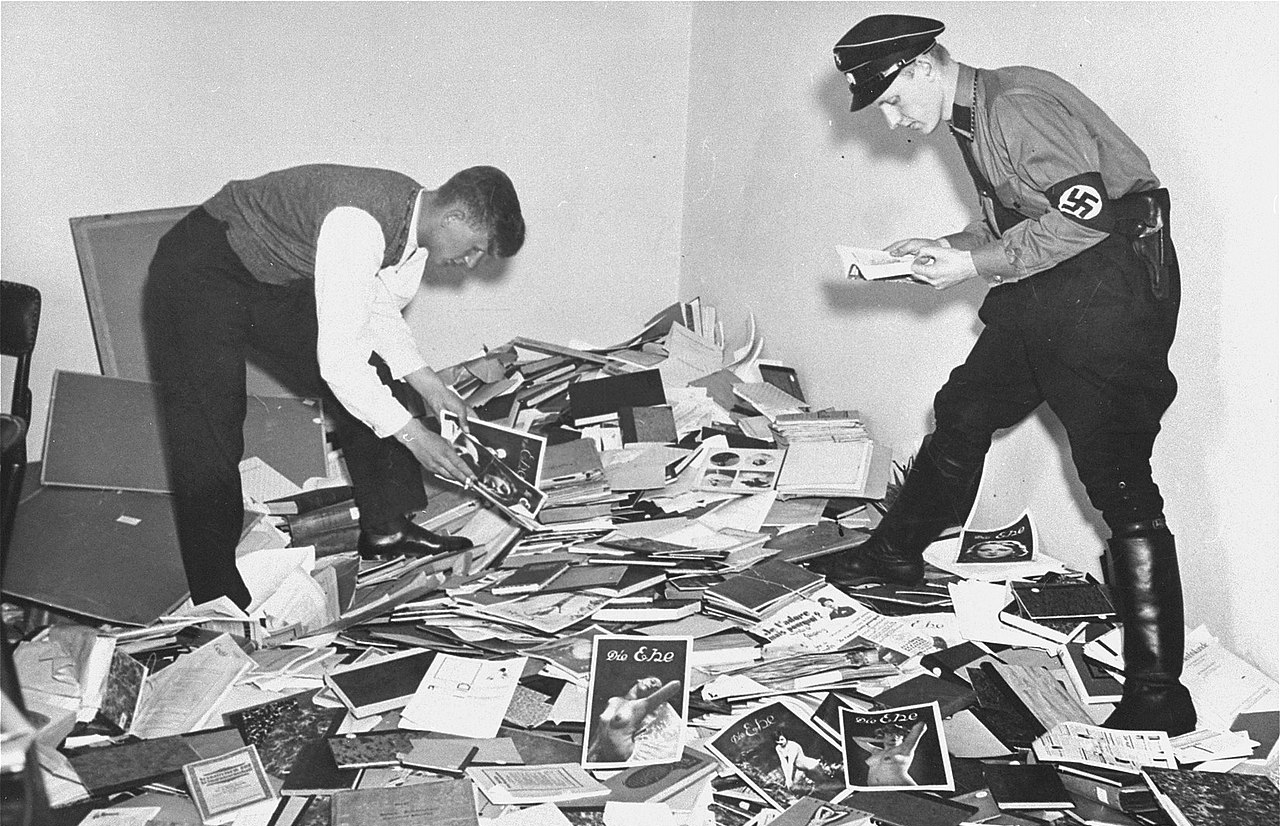
 hroughout history, young people have been seduced by radical ideologies. Nazi Germany was no exception. Having grown up with the economic fallout of the First World War, opportunities for the youth of Germany were crushed still further by the Wall Street Crash in 1929. People were desperate for change, and the Nazis’ revolutionary vision was irresistible. After the Enabling Act was passed in March 1933, German society underwent massive changes. Students across the country supported these radical measures, and they were also at the center of the infamous book burnings.
hroughout history, young people have been seduced by radical ideologies. Nazi Germany was no exception. Having grown up with the economic fallout of the First World War, opportunities for the youth of Germany were crushed still further by the Wall Street Crash in 1929. People were desperate for change, and the Nazis’ revolutionary vision was irresistible. After the Enabling Act was passed in March 1933, German society underwent massive changes. Students across the country supported these radical measures, and they were also at the center of the infamous book burnings.
Destroying the past
The Nazis hated any viewpoint that diverged from their own. They wanted society to be uniform, both ethnically and ideologically, and to achieve the latter, censorship was key.
Following the Nazis’ takeover, libraries were ransacked by students and the Sturmabteilung (paramilitary members of the Nazi Party). The stolen books were deemed to be against the Nazis’ ideology. Works by socialists, foreigners, and Jews were all taken away.
On the 10th of May 1933, these books were dumped in public spaces, often beside universities in major cities or towns. In Berlin, 25,000 books were piled up at Bebelplatz, a square near Humboldt University.
40,000 people (most of whom were students) attended the event. The piled books were set alight like bonfires, and more were tossed onto the flames as the night went on. Prominent members of the Nazi Party, such as Joseph Goebbels (the Minister of Propaganda), made rigorous speeches as the flames grew larger:
“The soul of the German people can again express itself. These flames not only illuminate the final end of an old era; they also light up the new.”
The new era
The Nazification of Germany increased in the wake of the book burnings. Personal freedom declined whilst censorship and propaganda increased. The scary thing is that plenty of Germans embraced these changes.
In terms of books, all literary activity was controlled by the Reich Chamber of Literature, which monitored publishing houses and book shops across the country. To make matters worse, writers, poets, screenwriters, and dramatists had to be members of this organization or they could lose their jobs.
Students and the Sturmabteilung continued to purge literary works they thought were against Nazi ideology. The degree of censorship only increased as time went on. Even Charles Dickens’s Oliver Twist and Sir Watler Scott’s Ivanhoe were deemed to be inappropriate.
But the Jewish literary community was hit the hardest. All books by Jewish writers were removed from the bookshelves. Books featuring a Jewish character or a Jewish theme were also taken away.
Afterword
The destruction of literature was just one part of Nazi Germany. Every aspect of society was plagued by censorship and propaganda. Many young people were fond of the new regime, and they genuinely believed the Nazi Party was going to lead Germany into a brighter future.
Whilst the Nazis are always considered the ultimate villains of history, their use of censorship and propaganda wasn’t unique. In fact, there are many governments around the world today that use similar tactics to warp the minds of their citizens.

Purchase my history quiz book: https://www.amazon.co.uk/dp/B0BLFWPMKL
Contact: jacobwilliamwilkins@gmail.com





